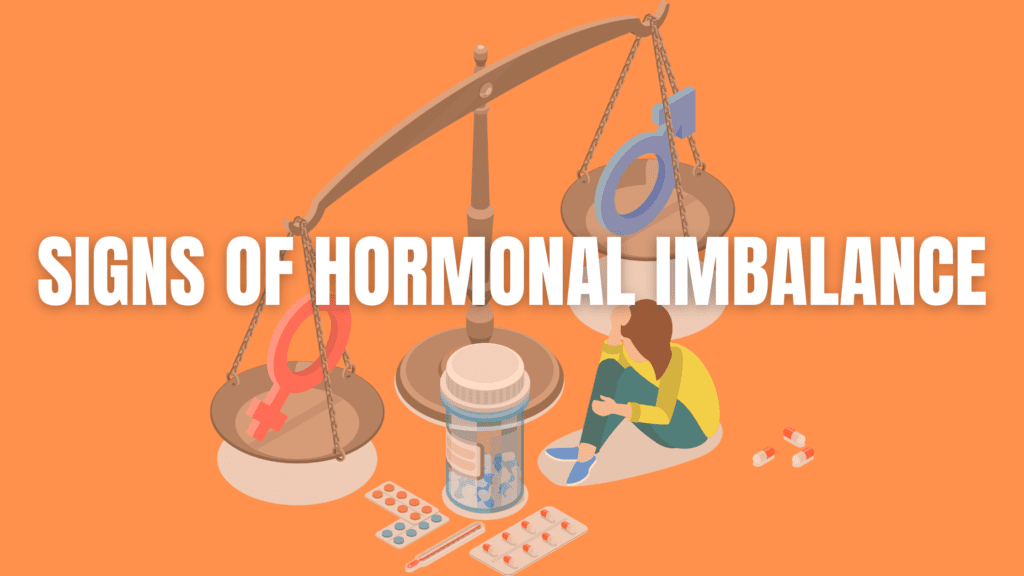Hormones are the body’s tiny messengers, controlling everything from your mood and energy levels to your metabolism and sleep. When they’re balanced, you feel great. But when they’re out of sync? It can turn your world upside down. The tricky part? Hormonal imbalances often start with subtle signs, signs that are easy to ignore until they become overwhelming.
If you’ve been feeling “off” lately and can’t quite pinpoint why, your hormones might be trying to tell you something. Let’s talk about the early signs you shouldn’t ignore.
1. Unexplained Fatigue
Feeling constantly drained, even after a full night’s sleep? This isn’t just regular tiredness, it could be a sign of hormonal imbalance. Thyroid hormones, cortisol, and insulin all play a role in energy levels. If your body isn’t producing them properly, you may feel sluggish no matter how much rest you get.
What to Watch For:
- Waking up tired even after 7-9 hours of sleep
- Afternoon energy crashes
- Feeling exhausted after minimal effort
2. Mood Swings & Anxiety
One moment you’re fine, the next you’re overwhelmed, irritable, or sad. If your emotions feel like a rollercoaster, your hormones might be in control. Estrogen, progesterone, and cortisol directly affect mood stability.
What to Watch For:
- Increased anxiety or sudden panic attacks
- Feeling overly emotional or irritated for no clear reason
- Frequent mood swings, especially around your menstrual cycle
3. Sudden Weight Changes
Struggling to lose weight despite eating healthy? Gaining weight without changing your diet? Hormones like insulin, cortisol, and thyroid hormones regulate metabolism, and imbalances can make it difficult to maintain a stable weight.
What to Watch For:
- Unexplained weight gain, especially around the belly
- Difficulty losing weight even with diet and exercise
- Loss of muscle mass despite working out
4. Skin Problems (Acne, Dryness, or Sensitivity)
Hormones are closely tied to your skin’s health. If you’re experiencing persistent acne, dryness, or sudden sensitivity, it could be due to imbalances in testosterone, estrogen, or cortisol.
What to Watch For:
- Adult acne (especially along the jawline)
- Excessively dry or oily skin
- Skin rashes or increased sensitivity
5. Irregular or Painful Periods
A well-balanced menstrual cycle is a sign of healthy hormones. If your cycle has become irregular, heavier, lighter, or more painful than usual, your estrogen and progesterone levels may be out of balance.
What to Watch For:
- Missing periods or unpredictable cycles
- Extreme cramping and heavy flow
- Spotting between periods
6. Sleep Disturbances
If you’re tossing and turning at night or waking up feeling unrested, melatonin, cortisol, and estrogen could be to blame. High stress levels can increase cortisol, making it harder to relax and fall asleep.
What to Watch For:
- Difficulty falling asleep despite feeling tired
- Waking up multiple times during the night
- Feeling groggy even after a full night’s sleep
7. Low Libido
A sudden drop in sex drive isn’t just about mood, it’s often linked to hormonal imbalances, especially in testosterone, estrogen, and progesterone levels.
What to Watch For:
- Lack of interest in intimacy
- Vaginal dryness or discomfort during sex
- Feeling disconnected from your partner
8. Hair Loss or Thinning
Hair health is deeply connected to thyroid hormones, testosterone, and estrogen. If you’re noticing increased shedding or thinning, it could be a hormonal red flag.
What to Watch For:
- Excess hair loss in the shower or on your pillow
- Thinning at the crown or hairline
- Brittle or dry hair
9. Digestive Issues (Bloating, Constipation, or Diarrhea)
Your gut health and hormones are closely linked. High cortisol levels (stress hormones) can disrupt digestion, leading to bloating, constipation, or frequent stomach issues.
What to Watch For:
- Unexplained bloating or stomach pain
- Frequent constipation or diarrhea
- Food sensitivities that weren’t there before
10. Brain Fog & Difficulty Concentrating
If you’re struggling with forgetfulness, mental fatigue, or an overall sense of “brain fog,” low estrogen, thyroid imbalances, or high cortisol might be to blame.
🔹 What to Watch For:
- Trouble focusing or remembering things
- Feeling mentally drained despite resting
- Difficulty processing information
What to Do Next?
If you recognize these signs in yourself, don’t ignore them. Hormonal imbalances can be managed with lifestyle changes, nutrition, and medical support. Here’s what you can do:
✅ Listen to Your Body: If something feels off, don’t dismiss it.
✅ Manage Stress: Practice deep breathing, meditation, or light exercise.
✅ Prioritize Sleep: Try to get at least 7-9 hours of quality sleep.
✅ Eat a Balanced Diet: Focus on whole foods, protein, and healthy fats.
✅ Consult a Doctor: If symptoms persist, consider getting a hormonal panel test.
Final Thoughts: Your Health Matters
Hormonal imbalances don’t happen overnight, and neither does healing. But the sooner you recognize the signs, the sooner you can take steps to restore balance. Your body is always speaking to you, make sure you’re listening. 💙

